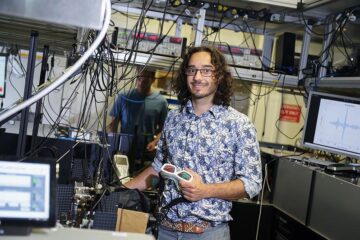ADI – Modified arginine deiminase as anti-tumor drug

Arginine deiminase (ADI) produces depletion of arginine and has been studied as a potential antitumor drug for the treatment of arginine-auxotrophic tumors such as hepato-cellular carcinoma (HCC) and malignant melanoma. These tumors that are sensitive to arginine depletion do not express a certain key enzyme in the synthesis of arginine from citrulline. Recent data showed that a pegylated form of ADI inhibits human melanomas and HCCs in vitro and in vivo. Furthermore, studies on human lymphatic leukemia cell lines confirmed ADI´s anti-angiogenic activity.
The main limitation for in vivo applications of numerous ADIs lies in their pH-dependant activity profile. ADI from Pseudomonas plecoglossicida (PpADI) for example has a pH optimum at 6.5. A shift from 6.5 to 7.5 (physiological conditions) results in an activity drop of approximately 80%. In order to shift the pH optimum, a directed-evolution protocol based on an adapted citrulline screening protocol in microtiter-plate format was developed and validated by the present invention. A proof of concept for ADI engineering resulted in an improved pH optimum and increased resistance under physiological and slightly alkaline conditions.
Weitere Informationen: PDF
PROvendis GmbH
Tel.: +49 (0)208/94105 10
Ansprechpartner
Dipl.-Ing. Alfred Schillert
Media Contact
Alle Nachrichten aus der Kategorie: Technologieangebote
Neueste Beiträge

Neue universelle lichtbasierte Technik zur Kontrolle der Talpolarisation
Ein internationales Forscherteam berichtet in Nature über eine neue Methode, mit der zum ersten Mal die Talpolarisation in zentrosymmetrischen Bulk-Materialien auf eine nicht materialspezifische Weise erreicht wird. Diese „universelle Technik“…

Tumorzellen hebeln das Immunsystem früh aus
Neu entdeckter Mechanismus könnte Krebs-Immuntherapien deutlich verbessern. Tumore verhindern aktiv, dass sich Immunantworten durch sogenannte zytotoxische T-Zellen bilden, die den Krebs bekämpfen könnten. Wie das genau geschieht, beschreiben jetzt erstmals…

Immunzellen in den Startlöchern: „Allzeit bereit“ ist harte Arbeit
Wenn Krankheitserreger in den Körper eindringen, muss das Immunsystem sofort reagieren und eine Infektion verhindern oder eindämmen. Doch wie halten sich unsere Abwehrzellen bereit, wenn kein Angreifer in Sicht ist?…

















